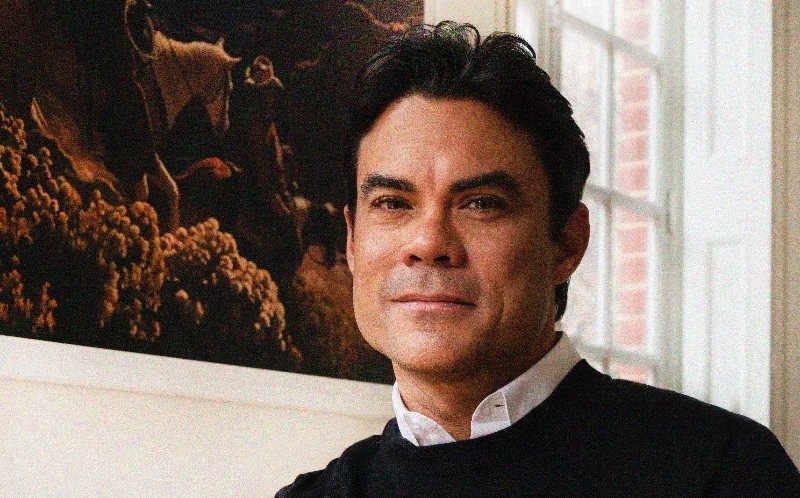In finance, there’s a term commonly used when analyzing different investment options called “opportunity cost.”
Opportunity cost is what businesses use to analyze the potential benefits — and potential costs — of choosing one option over another. But for today’s guest, the discussion of opportunity cost doesn’t start and end in boardroom finance meetings.
“You should always think about the opportunity cost of not making a decision,” Julian Reis says. “Let’s say, for example, you’re working at a bank and you’re earning a decent salary. If you quit and try to make it on your own, what’s the worst thing that could happen? My view [is that] the worst thing that could happen is you go back to the banking industry and get another job… Once you understand that dynamic, [I think] everyone should be going off and starting their own company and taking that risk [and] it gives you some comfort knowing that there is a protection underneath you.”
For Reis, the CEO and Founder of SuperOrdinary, weighing opportunity costs is a way of life. Understanding the true implications of seizing or passing on an opportunity is how he’s been able to spot macro trends, understand when to make career leaps, as well as when to make business investments.
SuperOrdinary is a worldwide team of experts working with best-in-class beauty and personal care brands to establish their influence globally. From the shops of Spain to LiveStreaming events in the heart of China, SuperOrdinary’s global reach is, well, super. But getting to that point was no easy feat, it took testing and iterating, and, of course, educated leaps of faith. Learn exactly how Julian built SuperOrdinary into the global standout it is today on this episode of The Journey.
Main Takeaways:
- Opportunity Costs Matter: Everything has an opportunity cost. Without understanding these costs, you can’t live your life or lead your business with intent. When considering a decision, always entertain what you could be losing by not making that choice.
- Expanding Globally, Means Acting Locally: Developing relationships in countries around the world requires having local teams on the ground. These teams build trust with local communities and businesses, and they help you understand cultural nuances you may otherwise miss.
- When to Go International: Not every brand is designed to go international — in fact, most aren’t. According to Julian, there are several criteria you need to consider before expanding. For example, is your product a good fit for that culture? Do you have the infrastructure to support international distro? Can you afford to burn money before you find your foothold in that new market?
Key Quotes:
On opportunity costs: “You should always think about the opportunity cost of not making a decision. Let’s say, for example, you’re working at a bank and you’re earning a decent salary. If you quit and try to make it on your own, what’s the worst thing that could happen? My view [is that] the worst thing that could happen is you go back to the banking industry and get another job… Once you understand that dynamic, [I think] everyone should be going off and starting their own company and taking that risk [and] it gives you some comfort knowing that there is a protection underneath you.”
On founding SuperOrdinary: “I found myself unemployed again and sitting in Hong Kong, looking at China, and now I’ve been going to China for 20 years. And I really saw this interesting opportunity that in China, which is now the largest beauty market in the world, [all these beauty brands were] being bought on platforms and not on their own websites, because there are no websites in China, it’s all done through the equivalence of the Amazons… And, I said, this is a tremendous opportunity to become the gateway partner of building these beautiful brands we have in the U S and bring them into China.”
On expanding the company: “And then, I started to think carefully about, well, if we can do it in China, why can’t we do it in other countries?”
On building local teams, globally: “The way we think be local but act global. So when we build our businesses in these different, geographies, [we] hire locally and build those local centers of excellence in each of those cities, whether it’s in Bangkok or Shanghai or Hong Kong… And I think learning and making decisions that way is always the best way. So, if we’re running a marketing campaign for Drunk Elephant, we don’t automatically just translate it and put it into that country. We think about all the cultural sensitivities. Does it make sense to people who like their product?”
On the company’s culture: “It’s been four very, very fast years and I’m so proud of everyone that’s in our company because they’re such nice kind people. Everyone’s very compassionate to each other in the sense of understanding if you’re going through a personal problem or something like that. I don’t think I’ve ever been in a business or a company that’s so supportive. We are really proud of where we are, to be honest. I really think people come to work because they love what we do.”
Bio:
Having experienced a unique childhood growing up in Australia, Singapore and Hong Kong, Julian learned how to adapt to his surroundings and ties his entrepreneurial acumen back to his childhood working in fast food restaurants learning team cooperation, finance, admin, logistics and interpersonal skills. He went on to get his start as a macro-trader with an eye for market-shaking trends, later using those talents to build and sell two successful hedge funds as well as an international oil services business.
In 2013, he became enamored with the world of beauty and decided to become an angel investor to cosmetics e-tailer Luxola (later sold to LVMH) and Skin Laundry, the disruptive, global dermatology business. Tracking the social commerce phenomenon in China, he founded SuperOrdinary in Shanghai in 2017 as a laboratory to grow the next generation of innovative consumer brands including Drunk Elephant, The Ordinary, and Supergoop!, and is now helping partner brands access places previously inaccessible across the globe – without compromise.
—
This season of the Journey is produced by Mission.org and brought to you by UPS. To learn how UPS can help your small business, go to UPS.com/pivot.




